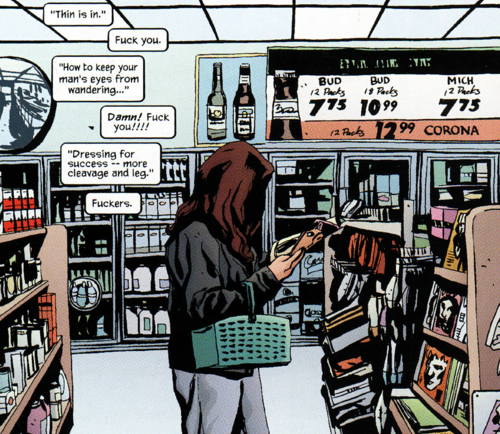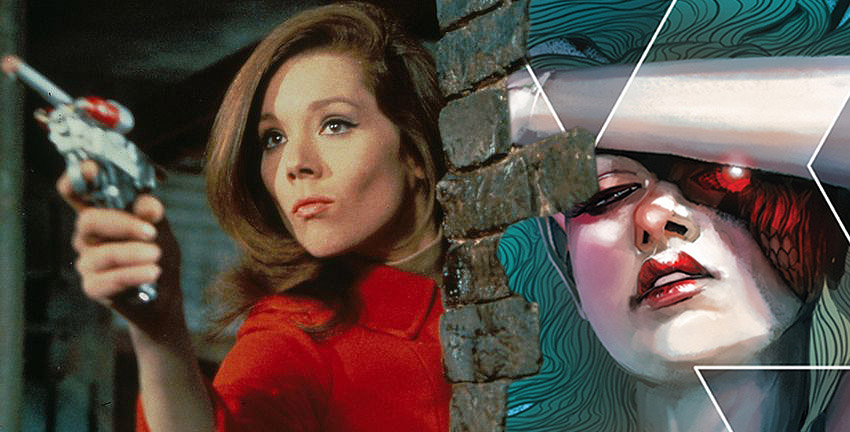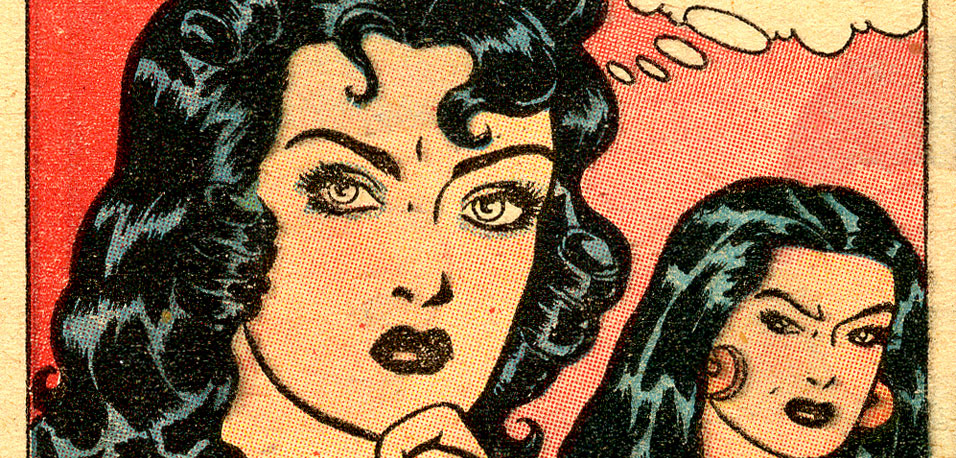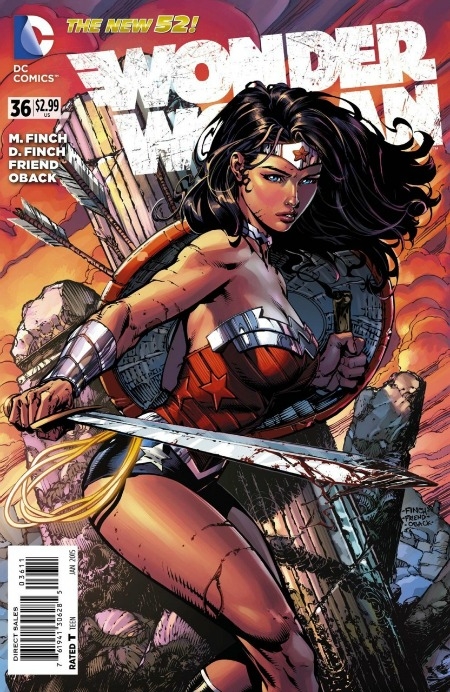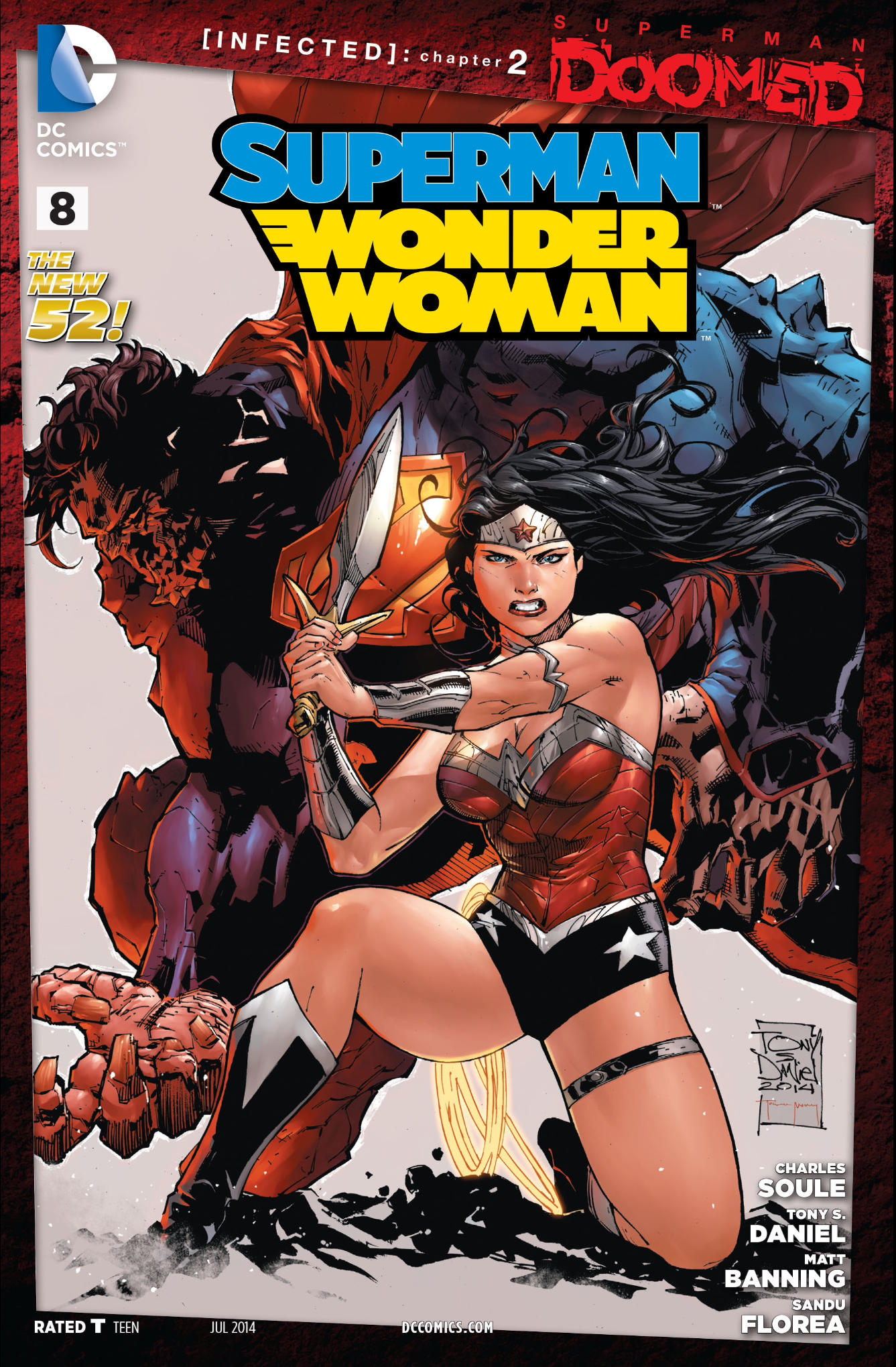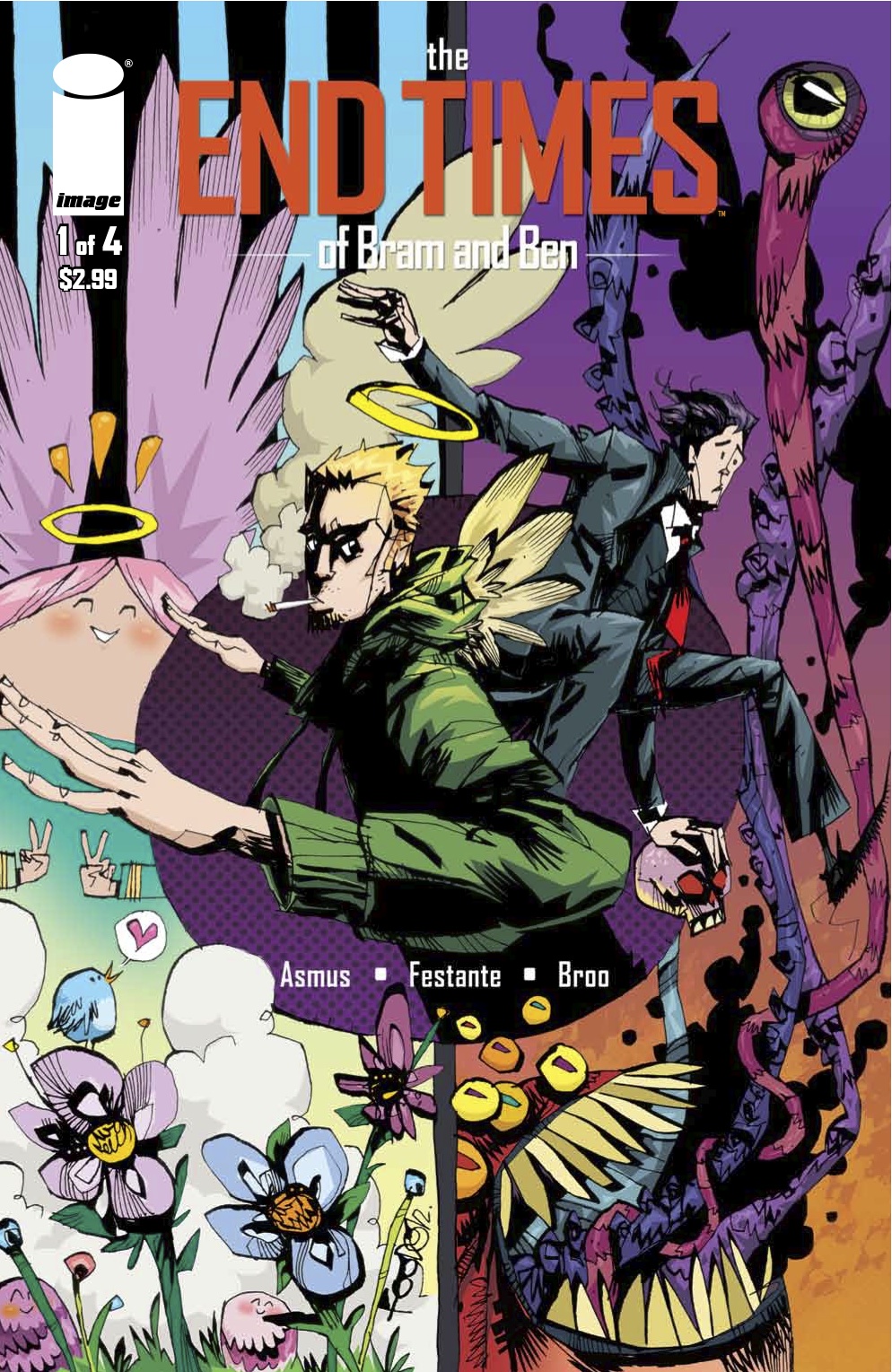Alias – Omnibus (2nd Printing)
Writer: Brian Michael Bendis
Art: Michael Gaydos w/ Bill Sienkiewicz (“Sidekicks), David Mack (Rebecca’s Journals), Mark Bagley & Rodney Ramos (Jewel sequence in #12), Mark Bagley, Al Vey & Art Thibert (Jewel sequence #21 & #25-26), and Rick Mays (Jean Grey Flashback)
Colors: Matt Hollingsworth w/ Dean White (Jewel sequences & Jean Grey flashback)
Letters: Richard Starkings & Comicrafts Wes Abbott, Oscar Gongora & Jason Levine & VC’s Cory Petit
Cover Art: David Mack
Collection Editor: Jennifer Grünwald
Review & Musings by Joey Braccino
**WARNING: Adult Language Ahead**

It’s a bit trippy to think that 2001 was over a decade ago. So much has happened in the last 13 years in life, obviously, but specifically with so many of the people and characters and concepts involved in Alias
And of course I don’t mean that culturally significant, critically acclaimed TV series from J.J. Abrams that debuted on ABC in September 2001 and starred an ineffable Jennifer Garner. No, I mean the inaugural, monumental, industry-breaking Marvel MAX series from Brian Michael Bendis and Michael Gaydos that introduced Marvel fans to Jessica Jones and the word “F**K” in a word balloon.
[I do find it fascinating that Alias and Alias debuted within a month of each other, and that both feature female characters bucking the system and redefining their respective media, but that’s a conversation for another time.]
Really though, Brian Michael Bendis is arguably the most significant comics writer in the industry today (at least on the Marvel side of the city country). Bendis steered the premier Marvel franchise, The Avengers, for nearly a decade through crossovers and events and spin-offs and he had a hand in character-redefining runs on Daredevil, Spider-Woman, and Moon Knight. He is currently giving the old college try absolutely killing it on the X-Men and The Guardians of the Galaxy, and, oh yeah, and he’s been writing Ultimate Spider-Man for almost 14 years. This isn’t meant to stroke the guy’s ego; he has had a constant and tangible impact on the publishing line of the largest comics publishing house in the industry, statistically speaking.
But it all had to start somewhere. Yes, Ultimate Spider-Man started in 2000, a year before Alias, but I would argue that it was the latter series—the gritty, pulpy investigative noir comic starring Jessica Jones—that truly foreshadowed Bendis’ impact on Marvel. If you look at Bendis’ work on the big, “recognizable” franchise books, you’ll notice a few thematic trends: the deconstruction of the superhero identity (New Avengers, Moon Knight), the inversion of good and evil (Dark Avengers, Uncanny X-Men), the “getting utterly dismantled and hitting rock bottom and just barely recovering” (Spider-Woman, Daredevil), the “brutal dismantling of your arch nemesis” (Daredevil, Ultimate Spider-Man), the concept of legacy and the meaning of heroism (Ultimate Spider-Man with Miles Morales, Secret Warriors), the role of media and public image in 21st century superheroics (New Avengers, Mighty Avengers, Pulse), the “rethinking this one-night-stand” thing (Daredevil), and the well-rounded-and-totally-badass female protagonist (Mighty Avengers, Avengers, Spider-Woman, All-New X-Men). These themes have become the hallmark of the superhero comics in the 21st century, and Bendis was exploring them all in his own way on a much smaller, more intimate, more immediate level in Alias in 2001.
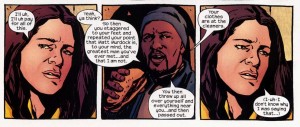
And because it was the first MAX book, he got to write “F**K” a lot.
Alias follows the (mis)adventures of Jessica Jones, private investigator and former-superheroine. The story goes that Bendis originally wanted to use Jessica Drew (Spider-Woman), but given the potential content of the new series and, of course, the “F**Ks,” the powers that be requested that Bendis create a new character. Thus, Jessica Jones. Over the course of the series, Bendis effectively retcons Jessica Jones into the general Marvel canon a la Paul Jenkin’s work on Sentry about a year earlier. Unlike Sentry, however, which was utterly unconvincing in its attempt to claim a “lost Stan Lee creation,” Bendis’ construction of Jessica Jones tragic and traumatizing fall out of superhero-dom and into the aforementioned rock bottom of dingy apartments and back alley brawls was so truthfully and realistically told that many readers were convinced that she must have been some obscure characters from at least the ‘90s.
Jessica Jones has one f**ked up life at the start of Alias. A private investigator, Jessica specializes in making people’s lives more miserable by revealing the truth: cheating spouses, runaway kids, drugs, death, etc. The first 21 issues of the book follows Jessica as she tries to solve (a la Veronica Mars, except not in high school and with more smoking, though I imagine the soundtracks would be similar) the cases that come across her desk. She runs afoul of J. Jonah Jameson, she f**ks up and gets drunk, she sits on the toilet, and she screens her calls. It’s like RENT-meets-The Maltese Falcon except with less singing, no femme fatale, and no fat villains. I’m trying to come up with corollaries here, okay?
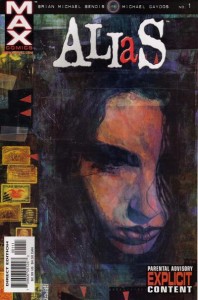
The final story arc is the origin of Jessica Jones, and it is brutal and vicious and unsettling and really puts into question—an real meta, Purple Man sorta way—just what superheroism does to a person. And that’s kind of what Alias is all about; once you’ve been through the whole superhero bulls**t, (how) can you pull yourself out?
Jessica actively tries to avoid the complicated world of masks and capes, but over the course of the series, she constantly gets pulled back in—mutants, a missing Rick Jones, a revived friendship with Carol Danvers (yes! Captain f**king Marvel is in this book), a burgeoning relationship with Paul Rudd Scott Lang Luke Cage, and a shocking interaction with Captain f**king America himself in the first arc keeps Jessica (and Alias) embedded in the Marvel Universe, but distinctly separate tonally. Fans of Bendis’ Daredevil run will see ample crossover in the middle issues of Alias, when Matt Murdock hires Jessica as a bodyguard during his whole “the tabloids outted me as Daredevil and I’m suing” storyline. I remember reading those issues in the Daredevil omnibus, and now here I was reading the same story from Jessica’s perspective in the Alias omnibus. Crazy.
And speaking of that whole full circle thing, I just want to reiterate how crazy it is that these characters—Jessica Jones, Carol Danvers, Scott Lang, and Luke Cage—have become such integral members of the Marvel canon over the last decade. All four are about to be featured in mass market media adaptations (Jessica Jones and Luke Cage will be on Netflix and Carol Danvers and Scott Lang are getting f**king movies) and all four have been all over the Avengers books and Scott Lang headlined the FF series under Fraction for over a year. From a creator standpoint, Bendis obviously has an extensive track record, but Matt Hollingsworth has been one of the most prolific colorists in recent years, with impressive, award-winning runs on Hawkeye, Daredevil, Punisher, Iron Fist, and Eternals. Bill Sienkiwicz and David Mack—two of the most iconic, recognizable artists in the medium—did and continue to do brilliant, genre-breaking work in comics. It’s just absolutely insane to think about how much of a creative watershed Alias is—this run is essentially one of the lynchpins of the comics industry timeline. The Marvel MAX/Marvel Knights era jumpstarts what becomes the Quesada E-I-C era, the New Avengers era, and the event era and it parallels the rise of the Ultimate line. Alias is right in there at the beginning of it all.
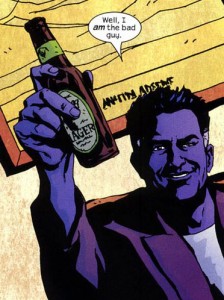
And damn did the first omnibus sell out quick. After I picked up the Captain America by Ed Brubaker collection and the Daredevil omnibuses (omnibi?) by Bendis and Brubaker and the Iron Fist omnibus by Fraction and Brubaker (notice a trend), Alias was next. So I logged onto the internet and it was like $200. And I was like, “f**k no.” The first printing of Alias was sold out for years before, right around the Netflix announcement, Marvel announced a second printing. And I jumped on that like whoa.
I love the omnibus collection. I credited collection editor Jennifer Grünwald up at the top because her department does an outstanding job with these oversized collection. Yes, the paper quality and the hard covers are stupendous, but it’s the extra material that makes it worth the price of admission. Essays, introduction letters, scripts, sample and concept art, deleted scenes: this s**t is bananas. Given all the cultural significance that I laid out above, the coolest bit of extra stuff is Bendis’ original pitch to management for the first arc of Alias. His crime-comics background at Caliber comes through in his pulpy description for a new P.I. story. And then to go back and reread that first arc, and to see just how much they let him keep in is astounding. The two notes by Allan Heinberg and Jeph Loeb respectively do an exceptional job of capturing just how important and revitalizing Alias was in the early ‘00s; Heinberg calls Alias “stylized hybrid of classic pulp genres, a superhero-noir” and praises Bendis “character-driven approach to storytelling [that] has quietly revolutionized mainstream super-hero comics” while Loeb writes that Bendis “uses words the way they are meant to be in stories like these—as bullets that pierce your imagination and get stuck in your brain.” All those curse words and distressing, unsettling images of violence and repression and pain—that’s real f**king life, man, and Bendis’ sense of rhythm and colloquial language is captured perfectly in Jessica’s voice and Luke’s voice and Scott’s voice and Carol’s voice. Alias is the definition of street-level comics, but without the yellow silk shirts (although Luke’s does make an appearance) and emerald-colored proselytizing.
The characters of Alias carried over into the more mainstream Pulse for another 14 issues, but without the gritty realism of the MAX banner, many argue that Jessica Jones lost a little bit of her edge. That’s not to say that the “f**ks” and the sex and the despair of it all defined who she is a character; rather, the freedom and realism of it all went away when Alias became the Pulse and became just another bit of four-colored fare.
Verdict
Treat yo’self. Or treat someone else for the holidays. Get yourself the Alias omnibus. If you’ve read any Marvel comics over the last decade, it either comes out of Alias or it comes out of Ultimate Spider-Man. You want noir? You want character-driven? You want good writing? You want stellar artwork? You want a meaningful, insightful, painstaking look into what makes a superhero ex-superhero hero person think? Check out Alias.
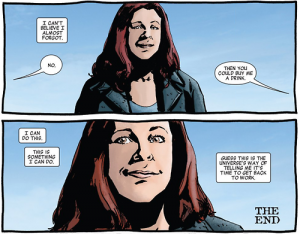
Thank you Brian Michael Bendis and Michael Gaydos for gifting us Jessica Jones. And may all the rumors of your return to the character (sparked by a strangely placed short in the Marvel 75th Anniversary Celebration issue) by true. And may the Netflix series be f**king awesome.
F**k.
***
You can purchase a copy on-line here!!! Otherwise, good luck. With all the “F**KS,” I doubt Marvel will be putting this up on the Unlimited app any time soon… and, for some odd reason, I can’t seem to find it on Comixology either. Anyway, the Omnibus treatment here is stupendous and definitely worth the price of admission. Check it!
